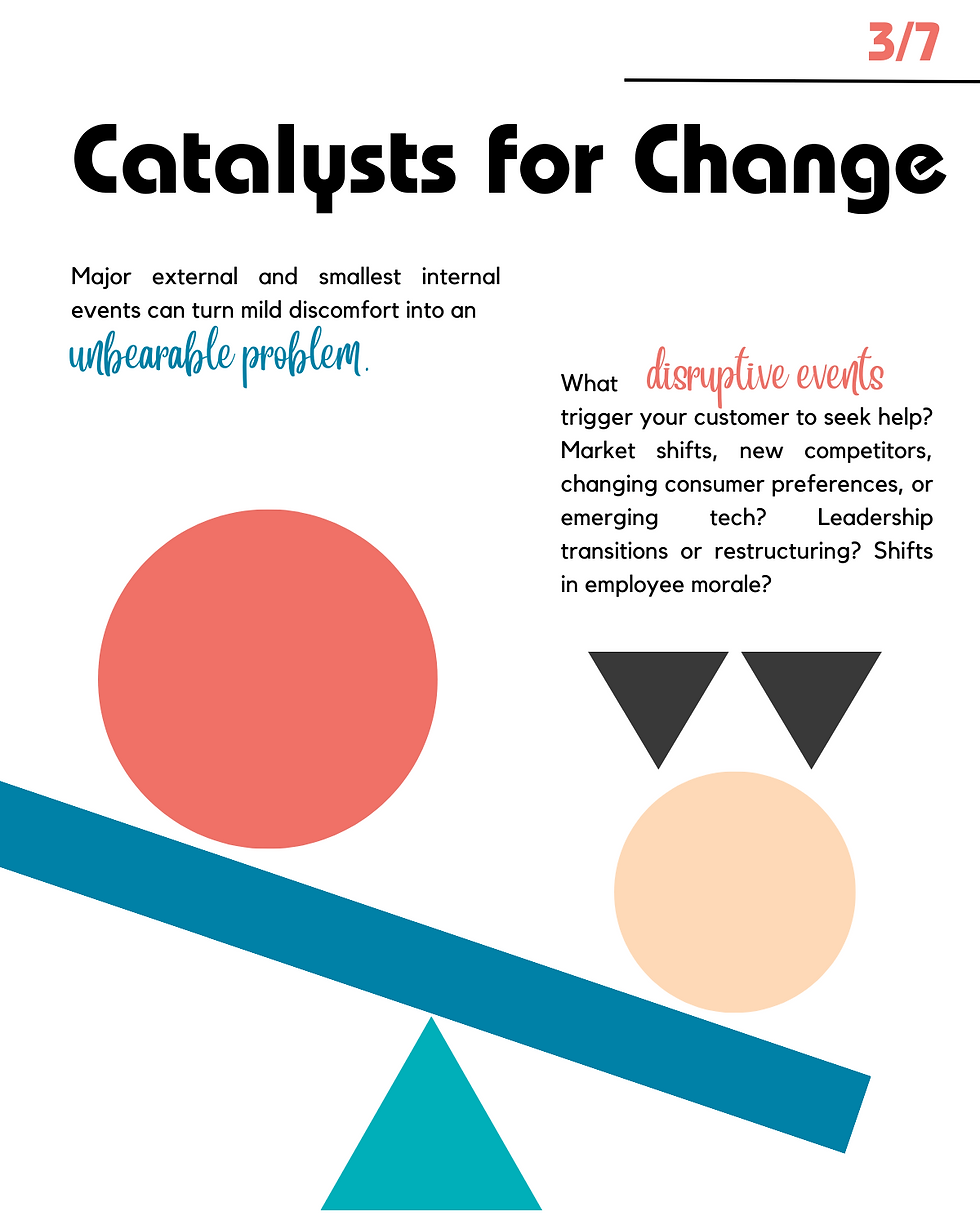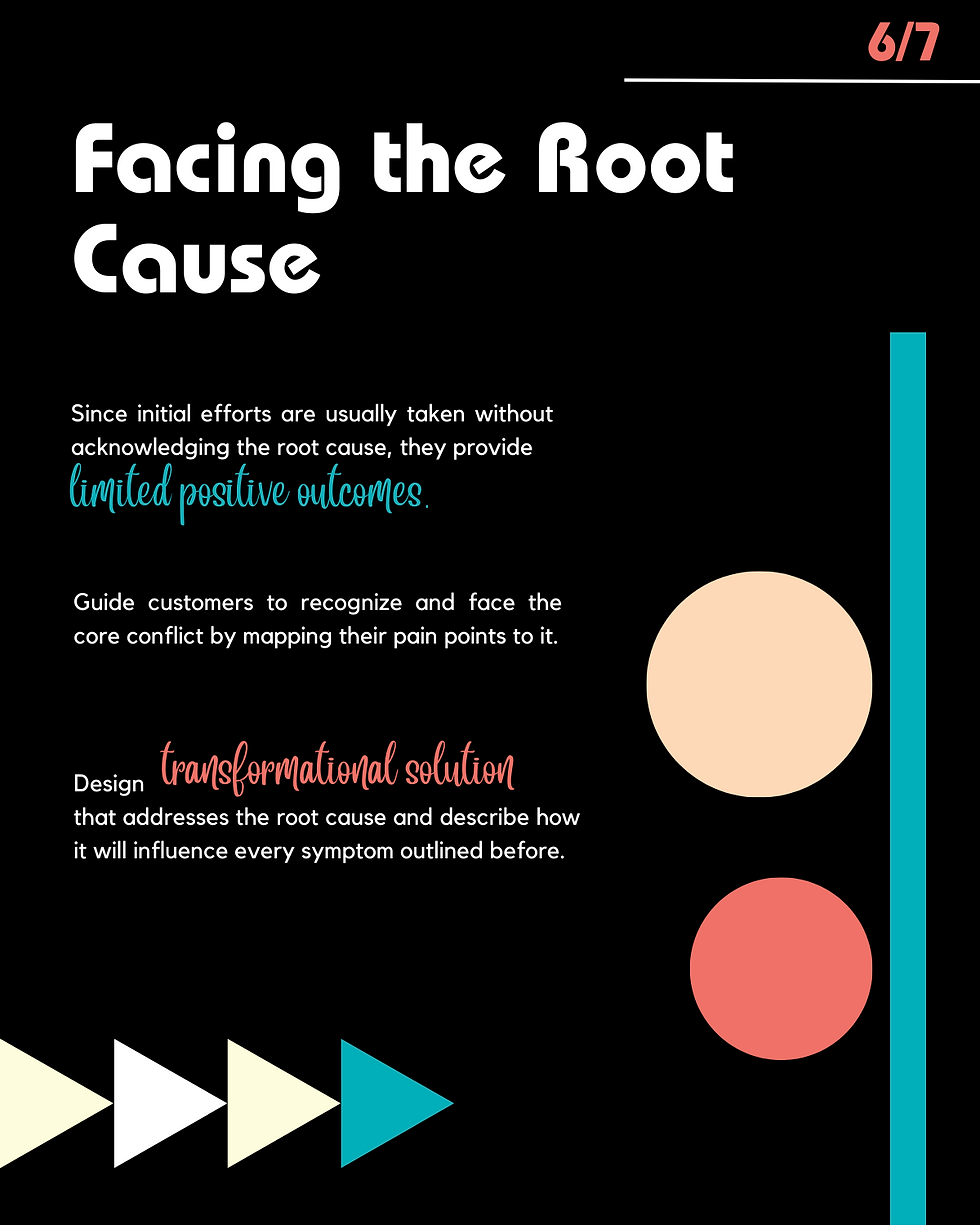Who's the leading hero in your business story? Is it you or your customer? If you choose random 5 texts from your website - what would be the ratio of you talking about how good you are vs your customer's context, triggers, pain points and goals?
Customers come to you because they can't continue their life the way they did before. They pay attention to what you have to say only when you realize that your role is to help them embrace their adventure and come out of it as a transformed, better version of themselves, their team or their organization. And when you start acting accordingly.
Here's a short guide on how to become your customer's Yoda or Gandalf, whichever you like best.
The Drivers of Your Customer Story
In every customer's chronicle, there is a fundamental force driving their narrative. It's a quest for something vital—a quest for mastery, for clarity, for development, or for innovation, but eventually for revenue growth. Opposing this drive is an antagonistic presence—a shadow of doubt, stagnation, or inefficacy. The saga unfolds as your customers realize that the negative values are overtaking their routine and they cannot continue sticking to it.
Then and only then they begin their journey from the darkness of this void into the light of their desired state. And they seek help.
When Things Are Okay… Until They're Not
Customers are usually fine with small problems as, honestly, - no system is perfect and businesses literally exist because we have issues and we need someone smart to help us deal with them.

But sometimes, a problem so big comes along that your customers can't ignore it anymore. This one thing no matter how tiny it may seem from the outside makes enough people in the company recognize the threat and that actions must be taken to prevent the consequences.
That's their call to action. That's where you have to meet them.

The Symptoms vs. The Root Cause
What makes a small problem into a big one?
It could be something big changing in your customer's world, or a bunch of little things adding up over a period of time but this is when your customers will start telling their story. These are the challenges they recognize and are trying to beat - the dragons they see and want to slay.
But just like in a joke about a group of blind men who have never seen an elephant before but are trying to describe what shape an elephant has by touching it - they might not see the whole picture at first. Their 'vision' is impaired by a myriad of factors, like their experience, level of seniority, and expertise to the corporate culture and ways of working that were acceptable before the change.

Enough Storyboarding..
People always choose the easy fix. The problem is that easy fixes usually address the symptoms not the elephant in the room, iywim.

Sometimes you do need just a patch, but more often than not the patch will make the problem even more complicated because in a while you end up having a root cause and a bunch of solutions made with baling wire and duct tape. The consequences of tearing one of them down are unpredictable and your customer gets scared to take any action at all.
Here's where they should DEFINITELY find you. Step in, not just with tools, but with wisdom that shines a light on the path forward.

The New World And How To Get There?
Always have a map - offer your customers the milestones and navigation tools, not just for the immediate gratification but for them to be in the driver's seat at every step of the way. Instant insights, short-term priorities, and a long-term roadmap are the talismans you provide to ensure their transformation is complete.

But every wise sage knows that the story doesn't end there. With new skills and insights, there's always a greater dragon to face. Hint at the future challenges they'll encounter, ensuring that when they're ready to embark on the next adventure, you'll be there, staff in hand, ready to guide them once more.

